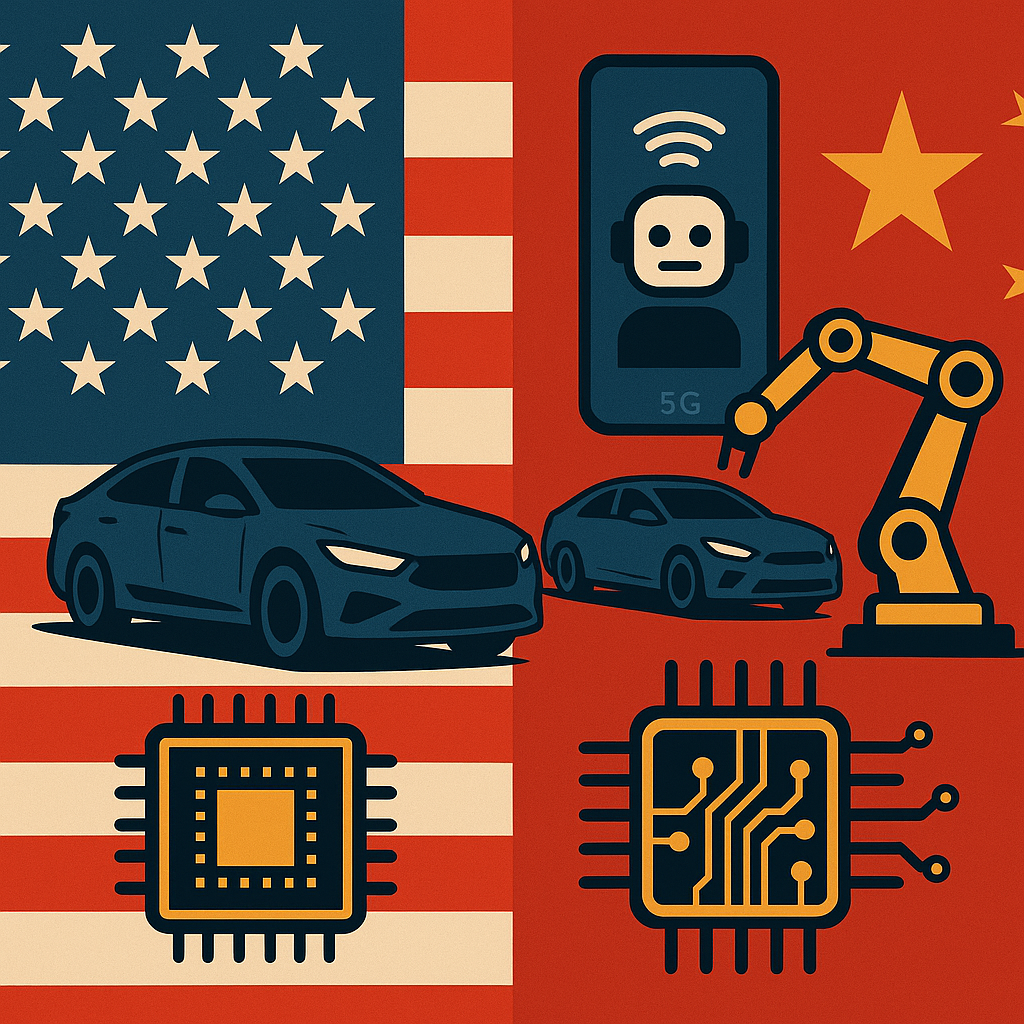Donald Trump may claim his trade war with China is all about bringing manufacturing jobs back to China, but in reality it may be a counter to the fact that the US is losing the tech race with China...
China's Manufacturing Muscle: EVs and Consumer Tech
15 Years ago the joke that is Elon Musk joked about Chinese car manufacturer's efforts to make electric cars, now they outperform the beleagured Tesla on almost every metric, including battery life.
Meanwhile, companies like Xiaomi, better known to the West for their smartphones, have entered EV manufacturing with stunning speed. Their assembly lines churn out a car every 76 seconds—a rate of production that surpasses traditional Western automakers Ford and GM.
This turbo-charged innovation is not isolated. China leads other consumer tech domains as well. While much of the UK and even parts of the US hang onto 4G networks, China is implementing 5.5G technology, with speeds of up to ten times 5G. These innovations aren't simply remapping China's economy—they're challenging the West's technological relevance.
AI, Chatbots, and Supply Chain Supremacy
Perhaps the strongest proof of China's rise is its leap in artificial intelligence. China's chatbot, DeepSeek, now rivals ChatGPT in capability but is produced at a tiny fraction of the cost. Why? Because China's control over supply chains allows it to create high-performance systems more efficiently and cheaply.
This is part of a broader trend. China is about far more than just factory manufacturing. For many years now Chinese firms have been accelerating research and development faster than those in the West. All of this is encouraged by government policy and state-led investment.
Semiconductors: America's Last Stronghold?
America does have one hold-out area where it has an advantage: semiconductors. Thanks to the likes of NVIDIA and Intel, but again the Chinese State has poured billions into this sector in recent years.
If semiconductors are the "brains" of emerging technology, then whoever controls chip production will control the future. This maybe explains why the U.S. has moved to deny China access to advanced chips and chip-making machinery...
Final Thoughts
Possibly all of this is one of the downsides of the free-market compared to the State. Possibly free market money ISN'T as good as State Vests for directing research into where it is most needed for national security...?
